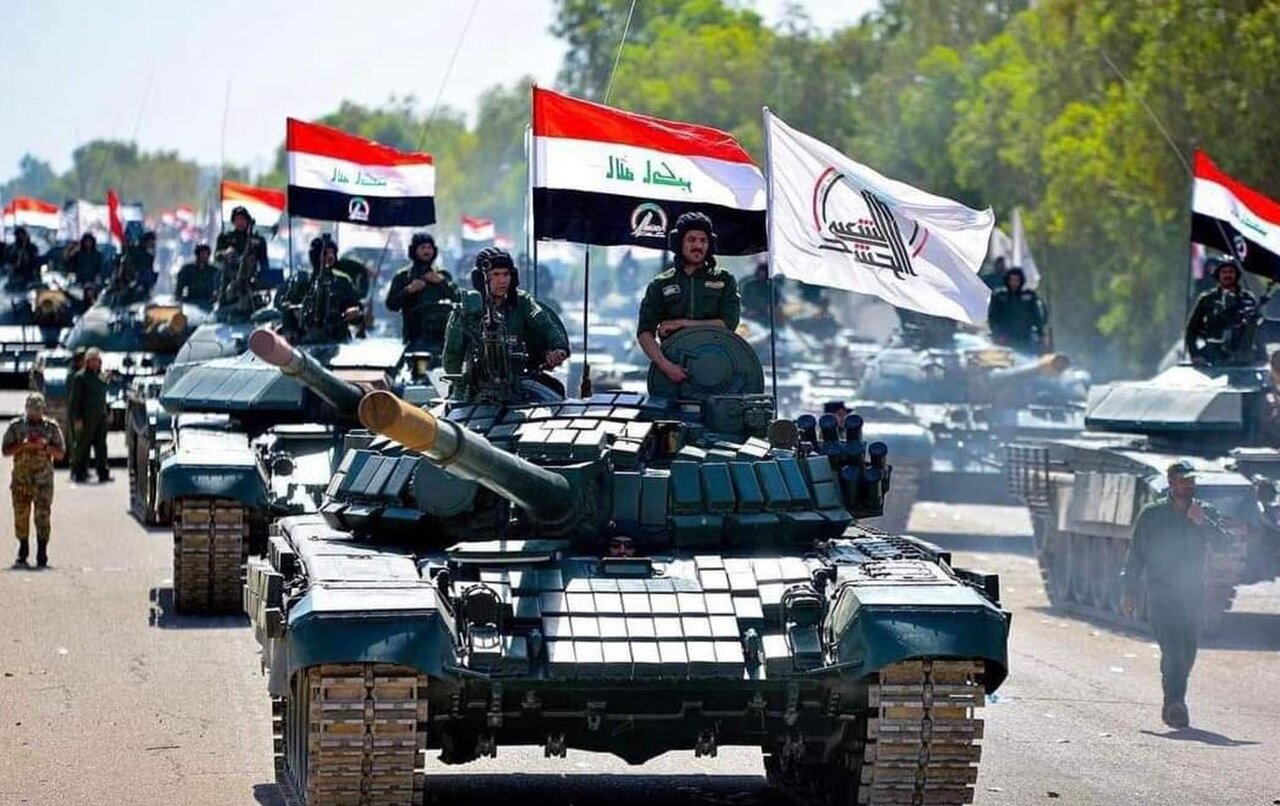
TEHRAN – U.S. pressure to disarm Iraq’s resistance factions is intended to influence elections and thereby undermine the country’s sovereignty and popular security forces.
The timing of U.S. pressure on Prime Minister Mohammed Sudani to disarm Iraq’s resistance factions is widely viewed by analysts as a strategic maneuver linked to the looming November 11 elections.
Many political observers consider Sudani the frontrunner, with his growing popularity rooted in a wide array of domestic achievements during his first term in office.
Also, his perception of independence and close ties to the Coordination Framework, the parliamentary coalition that enabled his rise to power are closely linked to America’s interference in Iraq’s domestic affairs.
The Coordination Framework, composed of influential Shia parties and political figures, has shaped Iraq’s post-2021 political order and is widely seen as ideologically aligned with the anti-American resistance factions that Washington seeks to weaken.
“We expect a significant victory,” Sudani told Reuters, adding he wanted a second term. “We want to keep going on this path.”
The renewed U.S. demands for disarmament, therefore, are not occurring in a political vacuum but rather at a moment when Sudani’s consolidation of authority threatens to cement a government less susceptible to American influence.
By pressing the disarmament issue now, the U.S. appears to be testing Sudani’s willingness to distance himself from the factions that both underpin his legitimacy and reflect the nationalist sentiment gaining traction among Iraqi voters.
This timing suggests a broader American attempt to influence Iraq’s political course days before a critical election. However, the move risks backfiring as it would be seen domestically as further U.S. interference aimed at undermining Iraq’s sovereignty and the popular elements that continue to shape its political and military landscape.
Sudani tied the resistance’s disarmament to the pullout of U.S. forces, widely seen in Iraq as an occupying army.
The U.S. and Iraq have agreed to a phased withdrawal of American troops, with a complete exit expected by the end of 2026. The initial drawdown began in 2025. The U.S. has previously violated withdrawal agreements under various pretexts, such as rebranding its forces from a combat role to an advisory one. Military experts argue that Iraq requires neither of these American roles.
Washington has been pressing Baghdad to disarm the resistance, which it claims is affiliated with the Popular Mobilization Forces (PMF).
The PMF was established in the summer of 2014 following a fatwa (religious decree) issued by Ayatollah Sistani in response to the defeat of the U.S.-trained Iraqi army.
This defeat occurred as Daesh rapidly advanced, seizing control of nearly two-thirds of Iraq. Since its formation, the PMF has become a central pillar of Iraq’s defense structure. It played a decisive role in the fight against Daesh, leading front-line battles for three years and ultimately defeating the terrorist group in 2017.
It is now a key pillar of the Iraqi armed forces after its integration in 2016. Analysts argue that any calls to dismantle the PMF come from parties bent on fostering insecurity in Iraq.
On the other hand, anti-American resistance factions emerged in the aftermath of the U.S. invasion and occupation of Iraq in 2003. Amid a security vacuum, these organizations were formed by locals determined to oppose foreign military presence and reclaim national sovereignty.
By 2014, many of these groups became incorporated into PMF and formed political parties. Nonetheless, several resistance factions have chosen to remain outside of the PMF framework, emphasizing that their struggle is focused on ensuring the complete departure of U.S. forces from Iraqi territory. They have stated that they will only disarm once the U.S. military occupation has fully ended and Iraq achieves total political and territorial independence.
From the perspective of much of the Iraqi public, Washington’s pressure on Baghdad to disarm the resistance that emerged after America’s 2003 invasion reflects a continuation of Washington’s longstanding interference in Iraqi sovereignty under the guise of counterterrorism and stabilization.
Many Iraqis view the resistance factions as the same forces that defended the country during its darkest years, fighting not only the American occupation but also al-Qaeda, Daesh, and other extremist militants that threatened Iraq’s territorial integrity.
To them, U.S. calls for their disarmament appear not as an effort to strengthen Iraqi statehood, but as an attempt to weaken its autonomous security infrastructure and reassert U.S. strategic dominance in the region.
This perception is reinforced by the continued presence of American troops on Iraqi soil, seen by much of the population as a violation of national sovereignty, especially after the Iraqi parliament’s 2020 resolution demanding a full withdrawal.
Moreover, disarming these resistance factions at a time when Daesh remnants are regrouping in Syria, where extremism has surged following the collapse of Bashar al-Assad’s government, is viewed by many Iraqis as a reckless move that could open the door to renewed Tafiri terrorist incursions.
For many citizens, Washington’s actions appear less about security and more about ensuring that Iraq remains militarily dependent and politically aligned with U.S. interests, rather than charting an independent path grounded in its own national defense priorities.
America’s insistence on dismantling these post-2003 resistance movements has deepened Iraqi skepticism toward U.S. intentions and fuels the narrative that Washington is more concerned with curbing what it describes as armed groups than genuinely safeguarding Iraq’s long-term stability.
“There is no Daesh. Security and stability? Thank God it’s there (in Iraq), so give me the excuse for the presence of 86 states,” Sudani told Reuters, in reference to the so-called U.S.-led coalition.
Disclaimer : This story is auto aggregated by a computer programme and has not been created or edited by DOWNTHENEWS. Publisher: tehrantimes.com





